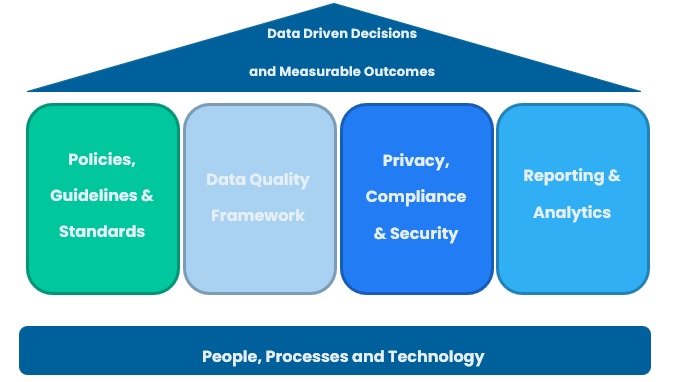Data Governance
We believe that effective data governance is essential to ensuring that our organisation can make informed decisions based on accurate and reliable data. Our data governance program is designed to establish clear accountability for data management, promote consistent data quality and usage across the organization, and ensure compliance with regulatory requirements. By implementing a robust data governance structure, we can maximise the value of our data assets and drive better business outcomes.
Our data governance structure is based on four pillars:
Policies, Guidelines, and Standards: We have established a set of policies, guidelines, and standards that define the rules and best practices for data governance within our organisation. These documents provide clear guidance on how data should be managed, stored, and used, and ensure that all stakeholders understand their roles and responsibilities in the data governance process.
Data Quality Framework: We have implemented a comprehensive data quality framework that ensures the accuracy, completeness, and consistency of our data. This framework includes processes for data profiling, data cleansing, data validation, and data enrichment, among others.
Privacy, Compliance & Security: We are committed to protecting the privacy and security of our data, as well as complying with all relevant laws and regulations. To achieve this, we have implemented a range of security measures, such as access controls, encryption, and monitoring, as well as processes for managing data privacy and compliance risks.
Reporting and Analytics: We use reporting and analytics to monitor our data governance program, measure its effectiveness, and identify opportunities for improvement. This includes regular reporting on data quality metrics, compliance status, and other key performance indicators, as well as ongoing data analysis to identify trends and insights that can inform our decision-making.


